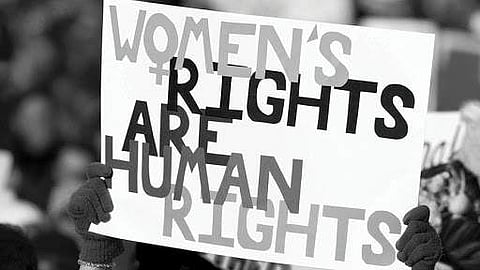

I think women are foolish to pretend they are equal to men; they are far superior and always have been, said William Golding, British novelist and poet.
Over-riding this view on women are men’s claims on women as expressed by Shakespeare:
I will be master of what is my own;
She is my goods, my chattels,
she is my house......
And here she stands,
touch her whoever dare.
William Shakespeare wrote in
The Taming of The Shrew.
Even after 500 years of the bard’s death, things seem to remain the same as highlighted in a case before the Supreme Court which provoked the then Chief Justice to make the following strong statement.
A woman does not mortgage herself to a man by marrying him and she retains her identity, including her religious identity, even after she exercises her right to marry outside her community under the Special Marriage Act, the then Chief Justice of India Dipak Misra orally observed while heading a five-judge Constitution Bench on December 7, 2017.
The Special Marriage Act of 1954 is seen as a statutory alternative for couples who choose to retain their identity in an inter-religious marriage. “Special Marriage Act confers on her the right of choice. Her choice is sacred. I ask myself a question: Who can take away the religious identity of a woman? The answer is only a woman can choose to curtail her own identity,” Misra said on the first day of hearing of a petition filed by a Parsi, who was barred by her community from offering prayers to her dead in the Tower of Silence for the sole reason that she married a Hindu under the Special Marriage Act.
The petition was against the Gujarat High Court’s March 23, 2012 judgment, which held that Goolrokh Adi Contractor ceased to be a Parsi as she had married Mahipal Gupta, a Hindu.
The then Chief Justice Misra’s observations have far-reaching implications — beyond the inter-religious marriage in this case. The wider issue is not yet settled and a large Bench of the Supreme Court is set to rule over it and several such issues involving other religious issues also on a wider canvas. Does a woman lose her personal independence once married as Shakespeare implies or is she without a mind of her own and could be whimsical or be manipulated — as casually believed?
